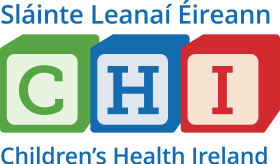Clinical trial for children with Crohn’s Disease: Moving treatment from the medicine cupboard to the kitchen table
Results from a recent clinical trial have shown that a new food-based dietary treatment for Crohn’s Disease helps children and young people to stay symptom-free for longer. This is positive news for families who, until recently, only had the option of a liquid nutrition treatment to reduce bowel inflammation.
Feb. 19, 2025
Research
Crohn’s Disease is a condition that affects the digestive system, causing pain, diarrhoea, weight loss, and tiredness. Crohn’s Disease is becoming more and more common in children. It has as major impact on their feeling of wellbeing, their day-to-day lives, and on their confidence and development.
Prof. Séamus Hussey, who is a Consultant Gastroenterologist at CHI and Associate Professor of Paediatrics at RCSI, worked with international colleagues to design the trial, which included children from Ireland and around the world. He explained:
“Crohn’s Disease can make life really hard for children, young people and their families. Until now, one of the best treatments we had to offer is called Exclusive Enteral Nutrition (EEN), where children drink only special liquid nutrition for six to eight weeks. This is a very effective treatment, kick starting a reduction in inflammation and a return to health in most children. These strict diets can be extremely hard for children and families to follow however, because of limited choices and bland tastes. Many families struggle to follow these strict diets, and symptoms can return. “It is with huge thanks to our participating patients, families, staff and funders that, for the first time, we have shown that a longer-term dietary therapy helps to treat certain patients with Crohn’s Disease. This takes our treatment options from the medicine cupboard to the kitchen table, which promises huge impact for children and their families.
Children and their parents prefer solid food-based diets to liquid nutrition options. The Crohn’s Disease Exclusion Diet (CDED) is a whole food-based diet. It restricts foods, such as high sugar foods and dairy products, which irritate the gut in Crohn’s Disease. However, children can still eat a wider range of fruits, vegetables, meats and fish.
Prof. Séamus Hussey worked with international colleagues to design a new trial to see if a combined approach (using both the Crohn’s Disease Exclusion Diet and Exclusive Enteral Nutrition) could be tolerated by children and effective at preventing symptoms from returning.
The trial results, published recently in the journal Clinical Gastroenterology and Hepatology, showed that the combined diet was indeed tolerated by most children. It allowed not only an improvement of initial symptoms but also prevented symptoms from returning in most patients.
“Moving from medical to dietary treatments for inflammatory bowel diseases offers huge hope to children and families, reducing pain and suffering in children and side effects that can result from the use of medicines in some cases. It is great to see Irish involvement in such vital studies in children and young adults and opens up the possibilities of expanding these types of treatment trials in the future.
This study received funding from a grant courtesy of Nestlé Health Science. Children’s Health Foundation supported the project at Children’s Health Ireland through a Research Project Grant awarded to Prof. Séamus Hussey.
